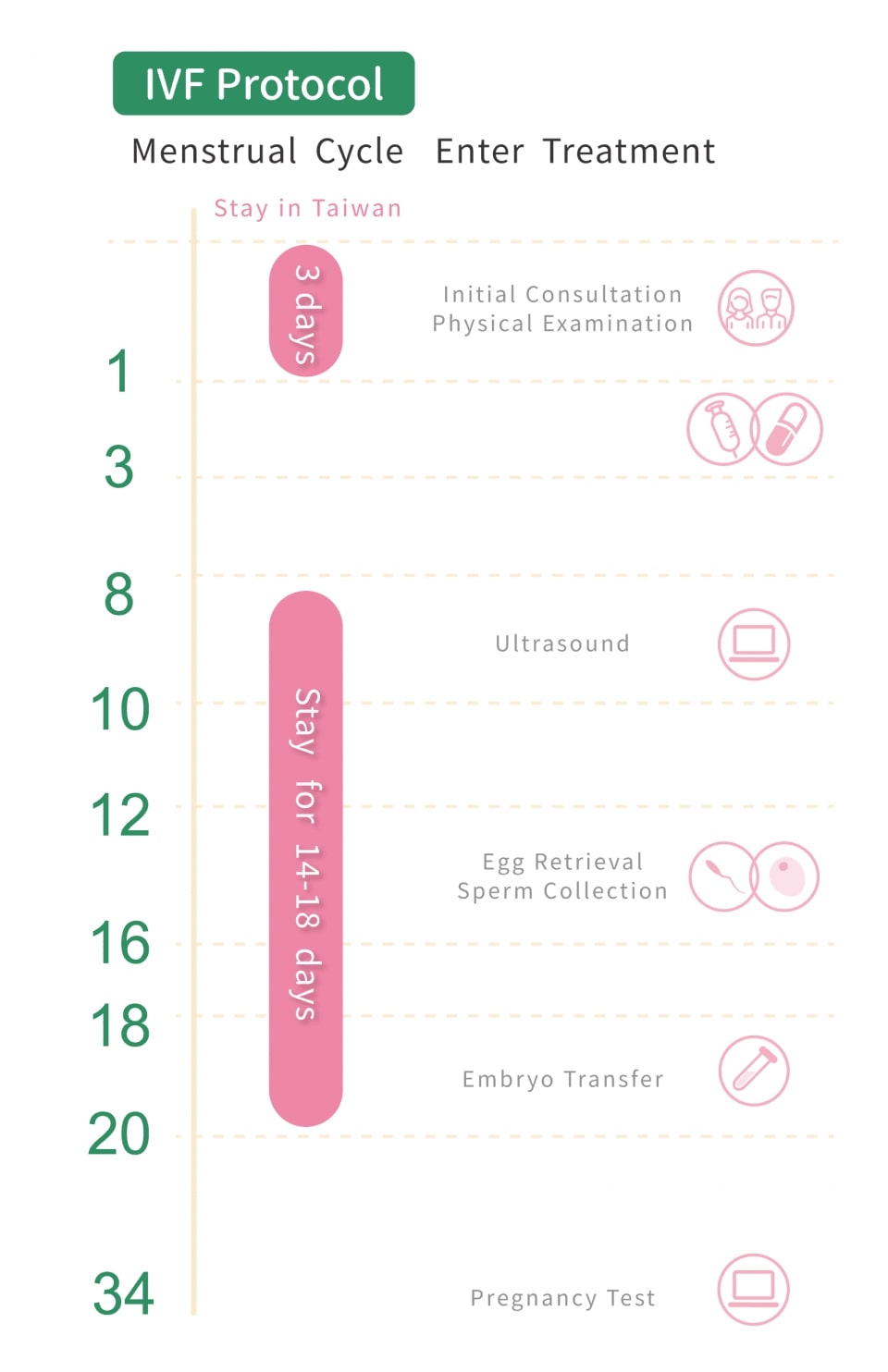Knowledge Sharing
2023.10.11
Risks and Side Effects of IVF
Risks and Side Effects of IVF
To avoid IVF side effects, it is essential to carefully select a reproductive medicine center before commencing IVF treatment. Through a professional assessment tailored to the patient's condition, the probability of IVF side effects, complications, and related risks can be minimized.
What are the side effects of IVF?
| Discomfort Caused by Ovulation-Inducing Injections | Bloating, gastrointestinal discomfort, fatigue, nausea, headaches, temporary weight gain, and other symptoms may occur as a result of the use of ovulation-inducing medications. These symptoms are typically mild and disappear quickly. |
|---|---|
| Ovarian Hyperstimulation Syndrome (OHSS) | Individuals may have a stronger reaction to ovulation-inducing medications in a minority of cases, resulting in symptoms such as bloating, abdominal pain, thirst, nausea, decreased urine output, and difficulty breathing. The majority of patients recover in 1-2 weeks, but severe cases may necessitate hospitalization. |
| Multiple Pregnancies | This is a relatively common side effect of IVF, occurring in approximately 20% of cases and resulting in twins in the majority of cases. |
| Ectopic Pregnancy | Ectopic pregnancy is extremely rare during IVF procedures. If it occurs, it is usually treated with medication or surgery, and it is critical to terminate the pregnancy as soon as possible to avoid putting the mother's life in danger. |
Do IVF have long-term side effects?
According to research published in the journal "Human Reproduction" by the European Society of Human Reproduction and Embryology (ESHRE), test-tube babies have the same IQ and behavioral development as those conceived naturally. Lee Women's Hospital specialists emphasize that even in natural pregnancies, there is a 2%-3% chance of congenital defects in embryos. They can actually help infertile couples select higher-quality embryos using professional reproductive medical techniques.How to reduce side effects of IVF?
There are risks associated with the egg retrieval procedure during in vitro fertilization (IVF) treatment, in addition to the aforementioned side effects and complications such as medication discomfort, Ovarian Hyperstimulation Syndrome (OHSS), multiple pregnancies (twins), and ectopic pregnancies. This procedure may result in bleeding and infection. There is also a risk of pelvic infection or bleeding following the implantation procedure. To address these potential scenarios, choosing a professional artificial reproductive medicine center and experienced specialists can help to reduce the risks associated with IVF treatment.Explanation of the IVF Process and Treatment Duration
In vitro fertilization (IVF) treatment is a common approach in the treatment of infertility that typically lasts 1 to 2 months.The IVF process can be summarized in the following steps: pre-treatment evaluations for both partners, monitoring of follicles, medication-induced ovulation, egg retrieval, sperm retrieval, in vitro fertilization and embryo cultivation, embryo transfer, and pregnancy testing.
A detailed flowchart of the IVF process is as follows:





